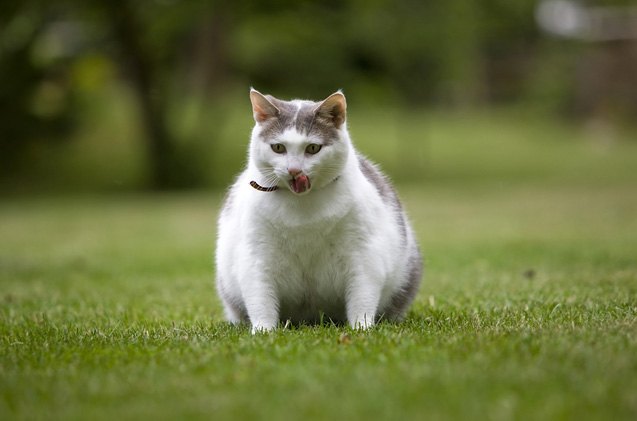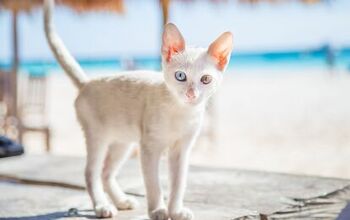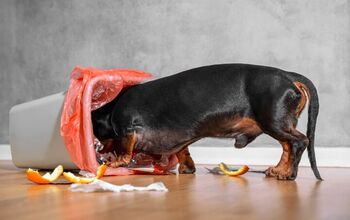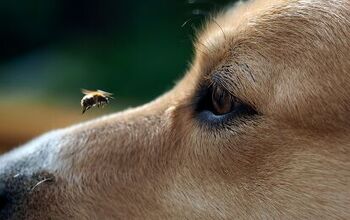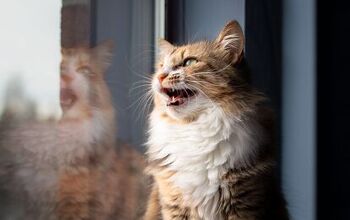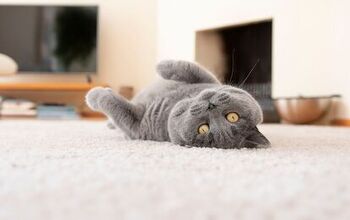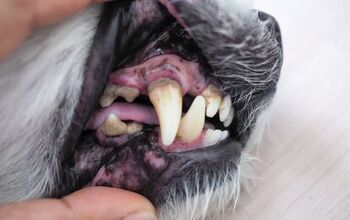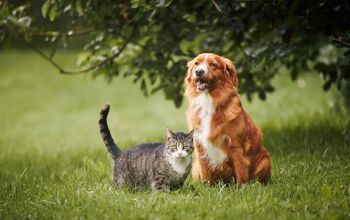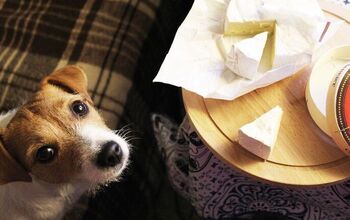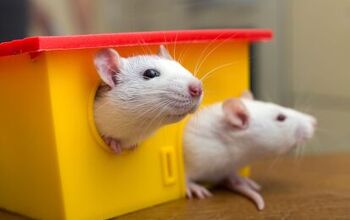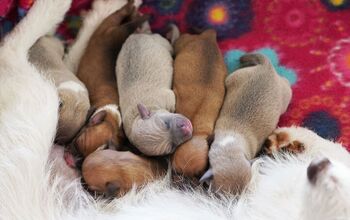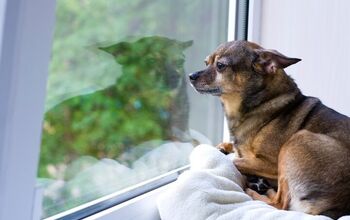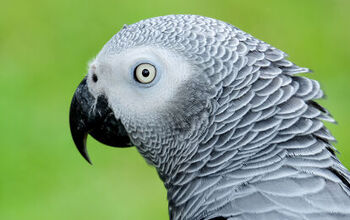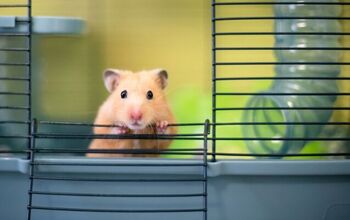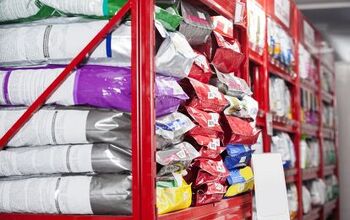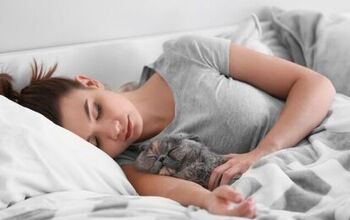What To Do With Your Overweight Cat

Cats love to eat, and without getting enough exercise every day, it’s easy for them to gain weight. In fact, experts have found that more than half of cats are considered overweight or obese. And this is bad news because being overweight may increase their risk for a variety of illnesses.
If you’re the not-so-proud parent of an overweight cat, there are things that you can do to help him slim down to a healthier weight. Check out the tips below to get started.
Stop Free Feeding
While it’s convenient to leave a bowl of food out for your cat to enjoy at all times throughout the day and night, especially when you aren’t home, free feeding is a contributor to excessive weight gain in cats. This isn’t the way that felines eat in the wild, where they have to expend a lot of energy to hunt down prey and then rest to recoup that energy before heading out for another meal again.
Related: How Much Should I Feed My Cat?
Instead of free feeding, give your cat two to four smaller portions of food every day. Work with your vet to determine the amount of food that you should be feeding so your kitty won’t gain weight from overeating or eating out of boredom.
Often, pet owners have to reduce the amount they’re feeding because what they think is normal is actually too much. For example, a 7 lb. cat should be given 0.6 to 1 ounce of food at each meal.
Don’t Overdo Treats
Giving your cat too many treats throughout the day will also contribute to weight gain. Remember that your overweight cat may be vocalizing and trying to get your attention for reasons other than hunger, so don’t reward vocalizations with food every time, as this will only encourage your cat to vocalize more by training him that doing so will give him a treat.
Related: How To Read A Cat Food Label
If your cat is already fat, you shouldn’t be giving him conventional cat treats that are often loaded with carbohydrates and flavor enhancers. If you must feed your cat a treat, consider cutting up tiny bits of cooked fish or chicken, as this will serve as a natural protein source rather than a treat filled with grains and artificial ingredients.
Feline Weight Loss Diets
Diets formulated for feline weight loss can be helpful, too. Remember that you shouldn’t “crash diet” your cat by fasting him. Overweight cats need to lose excess weight gradually. When the food intake is markedly and rapidly decreased, Hepatic Lipidosis, which is a serious and possibly fatal condition, may occur.
A high protein diet filled with meat has ample amounts of carnitine, an amino acid that plays a role in the conversion of fat back to glucose. Basically, the fat is utilized as glucose to provide energy, and this process helps reduce weight.
Exercise and Activity
To burn calories, your obese kitty needs to be active, both when you’re home and when you aren’t home. Purchase some toys that he can play with when you aren’t around, and rouse his hunting instinct by playing with him for a few minutes every day. You might also consider adopting another kitty so that your cat has someone to play with all the time.
A Quick Guide
To summarize, here are some of the steps you can take to help your cat lose weight:
- Have him examined by a vet, ruling out conditions like metabolic disorders and hypothyroidism that could contribute to weight gain.
- Feed less food in small portions anywhere from two to four times a day, while eliminating free feeding. Make sure the food is high in animal protein and fat, as well as low in carbohydrates.
- Increase your kitty’s exercise and activity level with playtime and environmental enrichment.
- Monitor progress by weighing your cat every three to four weeks. This will help you evaluate your plans and adjust wherever necessary.
- Once you’ve achieved the ideal weight, feed the appropriate amount of food to maintain that healthy weight.
Consult with a Veterinarian
Be aware that working with your vet is really the best way to ensure your kitty gets the right nutrition and maintains the right weight. Your vet knows your cat best, especially if your pet suffers from a chronic condition, so she can direct you to the appropriate foods and tell you how much food you should be giving your cat every day.

Lisa Selvaggio is a freelance writer and editor, and our resident cats-pert, with certifications in pet nutrition and pet first aid. She enjoys producing content that helps people understand animals better so they can give their pets a safe and happy home.
More by Lisa Selvaggio



